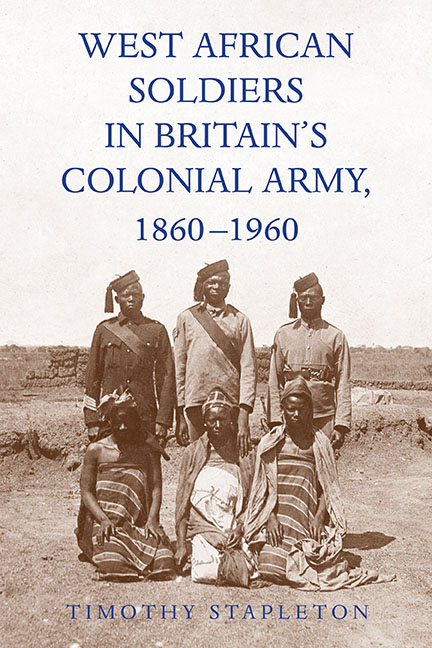Book contents
9 - Mutiny
Published online by Cambridge University Press: 07 October 2022
Summary
Greatly feared by military commanders, mutinies represent soldiers’ revolts against military authority, ranging from passive strikes where troops refuse orders to violent insurrections. Throughout the history of Britain's West African colonial army, African soldiers staged a series of protests characterized by their officers as mutinies. The occurrence of such incidents clearly formed a pattern. While mutinies happened more commonly during the early years of Britain's West African army in the late nineteenth and early twentieth centuries, another spate of these episodes took place during the Second World War and in the 1950s, just a few years before the withdrawal of British colonial rule. They did not take place during the interwar era of the 1920s and early 1930s when British colonialism in Africa seemed at its most secure. Mutinies happened during periods of war and peace and involved troops from all Britain's West African territories of Nigeria, the Gold Coast, Sierra Leone, and the Gambia. In addition, it is almost certain that many more of these disturbances took place among British West African forces than indicated by the available evidence. Authorities covered up some events, the records of some inquiries and military trials are lost, oral histories point to incidents for which there are few if any accessible official records, and some archival documents allude to episodes for which there are no detailed accounts. Nevertheless, the frequency of mutinies among Britain's West African soldiers appears not much different from those of troops from American, British, or Canadian armies of the same period. During the American Civil War (1861–65), for instance, federal and confederate forces experienced over two hundred different episodes defined as mutiny by officers.
In explaining soldiers’ protests, a recent study of army mutinies in the states of postcolonial Central and West Africa found that such incidents did not represent simple acts of indiscipline. These episodes differed from the military coups that became common in parts of independent Africa in that mutineers did not aim to take over the state. Rather, mutinies usually began over soldiers’ specific material grievances and/or perceived injustices that were symbolic of larger problems within the military; they served as desperate attempts by frustrated troops, ignored or blocked by their immediate superiors, to communicate with higher military leadership.
- Type
- Chapter
- Information
- West African Soldiers in Britain's Colonial Army, 1860-1960 , pp. 272 - 295Publisher: Boydell & BrewerPrint publication year: 2021

